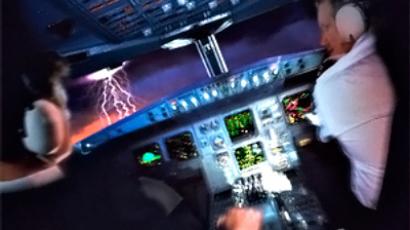Russia rescue dogs sniff survivors from rubble and death
Russian search and rescue dogs have saved people’s lives around the world, and their trainers are hoping they will do the same in the devastated nation of Haiti.
Following his nose and working his tail off. For two-year-old Barsik it is still a game, with sausage as the top prize. But a few months of such training may save somebody’s life.
“Barsik is a talented dog,” said dog instructor Natalya Masheiko. “His only problem is that he is a slow thinker, but he is hard working and consistent. If there is a person buried underneath, he will find him.”
It started in the mid 1990s – with a group of volunteers coming together to train their dogs. More than a decade later, Russia’s canine units are among the best in the world. They searched for survivors after the tsunami in South-East Asia, following the earthquake in Pakistan and in the aftermath of apartment bombings in Moscow. Now their skills are being put to the test in Haiti.
“It is difficult to work there because it is so hot. Dogs get tired more quickly. And with so many corpses decomposing under the rubble, it makes it more difficult for them to look for survivors,” said rescuer Aleksandr Nikolsky.
Sweltering heat and overpowering stench – that is what Alexander remembers the most from his rescue trip to Pakistan in 2005. The earthquake killed more than 80,000 people but 30 managed to make it – thanks to Alexander’s dog, Tonic.
“When a dog catches somebody’s smell, it does not always guarantee survival. It takes hours, sometimes days, to pull people from under the rubble. And while the dog may indicate that a person is still alive, by the time we get the person out, they may already be dead,” Nikolsky said.
While most of the Russian dogs sent to Haiti are trained to look for survivors, their handlers understand that soon they may have to change their mission from rescue to recovery.
Russian dogs have rescued people all over the globe. And while they are trained to race against time, in Haiti this precious skill may not be used to the full because in Port-au-Prince now you don’t need to look far and deep to find people in need. What is in short supply are people who can help.
In the short time the Russian canine unit has been in Port-au-Prince, they have rescued two people. And while on the apocalyptic scale of the Haitian earthquake it is a win by a nose, it is still a win.













